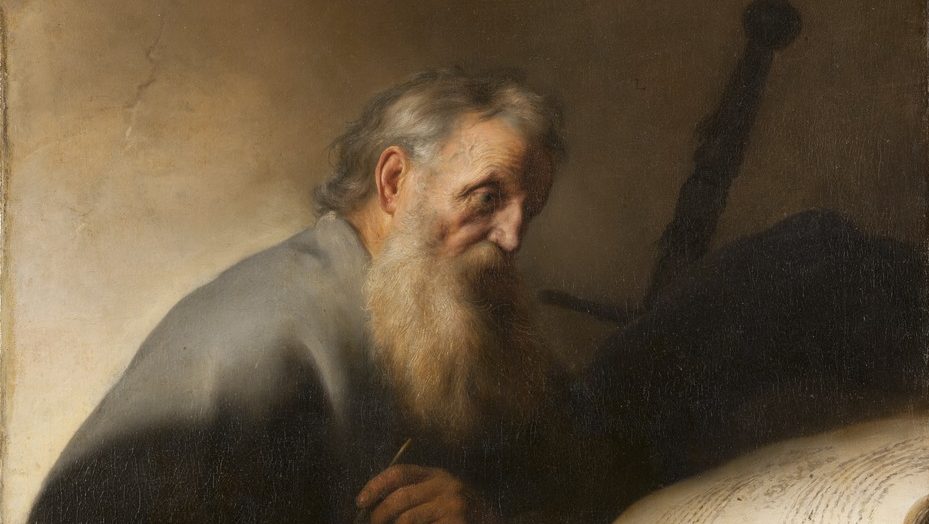First in a series of columns on St. Paul.
It’s impossible to imagine what the last 2,000 years would have been if St. Paul had not lived at the far end of them. All the years since have borne the mark of Christianity — and so much of what we understand about Christianity, and especially about the cross, we have learned from the great Apostle to the Gentiles.
St. Paul was among the first to set pen to paper to proclaim the Gospel. He took the heritage of Israel and renewed its language for the New Covenant. Paul gave the Church the vocabulary it would use to understand the life, death, and resurrection of Jesus.
We have him to thank for so much of what we call the Church. It’s not that he was the “founder” of Christianity, as some people claim. But he did play a unique role in the early proclamation of the Gospel.
His name from birth was Saul. He was a Pharisee, and so he worked to hasten the day of the Messiah’s coming. He went so far as to enforce the strictest fidelity to the Law of Moses, believing that this would bring about the Day of the Lord. It was for this reason that he persecuted the Christians (see Philippians 3:5–6). He thought they were abandoning the God of their ancestors in order to worship a man.
Then Saul met Jesus. The encounter was dramatic (see Acts 22). Saul recognized that Israel’s expectations had already been fulfilled and the Messiah had come.
There was no need for him to abandon the religion of the Old Covenant. Rather, he saw the signs and proclaimed the Day of the Lord, no longer in anticipation, but now in fulfillment.
This came at no small cost. He had to endure afflictions and hardships — beatings, floggings, stoning, imprisonment, shipwreck, hunger (see 2 Corinthians 11:23–28).
He traveled the world to announce a Church that was universal, intended for Israel and the nations together. He began to use the name Paul.
Of all the apostles, it was St. Paul who most consistently kept the Church from receding back to the safety of a provincial reservation. It was St. Paul who kept the universal, Catholic vision. It was St. Paul who proclaimed the power of the sacraments of the New Covenant. It was St. Paul who, together with St. Peter, consecrated Rome with his own blood, shed in martyrdom.
Even today, St. Paul’s letters convey urgency. We catch on to his excitement, but we can also be frustrated. He rarely takes time to spell things out, and he assumes that we already know a lot about the Bible. Even St. Peter confessed that he found St. Paul’s letters “hard to understand” (2 Peter 3:15).
When we read St. Paul, we sometimes feel we’re being propelled forward by a hurricane or some other force of nature. But it’s even stronger than that, because it’s a force of grace.
Look at those maps of his journeys. Then remind yourself that the momentum has not diminished. God’s arm has not been shortened. When you read the Pauline letters, you’re exposing yourself to the same force. Brace yourself.

